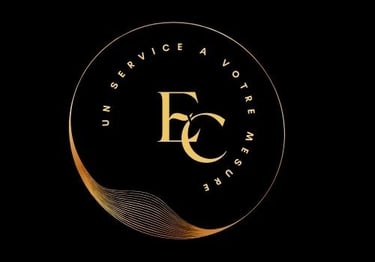How a Small Business Can Leverage Web Marketing for Success: Tips, Pitfalls, and Hot Trends
Discover how small businesses in the U.S. can boost digital visibility through smart web marketing, local SEO, and authentic Facebook engagement.
MARKETINGWEBMARKETING
LYDIE GOYENETHCE
10/24/20256 min read


In the United States, small businesses are the backbone of the economy. There are approximately 34.8 million small businesses, representing 99.9% of all American enterprises. According to the U.S. Small Business Administration, they employ nearly half of the private workforce and contribute about 43.5% of the national GDP. Behind each local shop, artisan, or small online store lies a crucial challenge: how to remain visible and competitive in a digital world dominated by big players and constant algorithm updates.
For many years, having a website was seen as optional — today, it’s a necessity. Recent data shows that 73% of small businesses in the U.S. have a website, while 27% still operate without one, often due to budget limitations, lack of technical skills, or the belief that “my customers don’t search online.” Yet, reality tells another story: 81% of U.S. consumers research a product or service online before making a purchase. That means a business without a strong web presence is essentially invisible to most of its potential market.
Understanding the Visibility Gap: Why Most Small Businesses Struggle Online
The Hidden Divide Between “Having a Website” and “Being Found”
For millions of small business owners, having a website once felt like a victory — a sign that they had entered the digital world. But in reality, most small business websites barely register on Google’s radar. According to recent Semrush data, nearly 45% of small business websites attract fewer than 500 visitors per month, and only a small fraction achieve consistent organic growth. In a digital ecosystem dominated by algorithmic competition, being online is no longer enough; being visible has become the real challenge.
Search visibility is now a zero-sum game. Only 10 organic positions exist on Google’s first page, and those top results capture 91.5% of all organic traffic. The rest — hundreds of thousands of pages — are virtually invisible to users. For a small business that doesn’t have the resources of a large corporation, ranking among the top results feels like chasing a moving target.
The Local Search Opportunity Few Businesses Exploit
The irony is that local intent searches — phrases like “coffee near me” or “eco-friendly store in Portland” — represent one of the most valuable opportunities for small businesses. According to BrightLocal, 50% of consumers who perform a local search visit a store within 24 hours, yet only 28% of small businesses have fully optimized their Google Business Profile. This disconnect is what experts call the visibility gap — the difference between having a presence online and appearing where customers actually look.
This gap is not just technical; it’s behavioral. Many small business owners invest in web design, social media posts, and even paid ads without connecting these efforts through a coherent strategy. They focus on creating content instead of optimizing it, or on posting regularly instead of measuring performance. As a result, their visibility remains fragmented, their SEO underdeveloped, and their growth unpredictable.
Algorithms Don’t Reward Effort — They Reward Relevance
The digital marketplace doesn’t operate on merit or passion; it operates on data. Search engines prioritize pages that demonstrate relevance, authority, and trustworthiness. These signals are quantified through metrics like dwell time, backlinks, and keyword optimization. Without a clear understanding of these mechanisms, small businesses risk shouting into the void.
A bakery in Austin, a yoga studio in Denver, or a crafts shop in Vermont can all create beautiful websites filled with photos and heartfelt stories. But unless these pages are optimized for local and semantic search — and linked to a broader digital strategy — they will remain unseen. In 2024, relevance is the new visibility.
From Visibility to Viability
The struggle for online visibility goes far beyond search rankings. It reflects a broader truth about digital survival: a small business that cannot be found cannot grow. The transition from visibility to viability begins with understanding how users behave online. Consumers don’t search randomly; they search with intent. They compare, evaluate, and decide within seconds.
When 81% of U.S. shoppers start their buying journey with a Google search, every click becomes a micro-moment of decision. For small businesses, the challenge isn’t just to appear in those moments — it’s to appear as the most relevant, trustworthy, and human option available.
However, having a website doesn’t automatically mean being found. The real competition lies in digital visibility — how well a business appears in search results, stands out on social media, and connects with audiences online. The digital landscape has become a battlefield where attention is scarce and algorithms rule.
Some industries are especially cutthroat when it comes to SEO and keyword competition. According to SEO research by Bluetone Media, the most competitive fields include legal services, real estate, healthcare, e-commerce, and professional consulting. In these areas, ranking organically on Google requires not only optimized content but also technical excellence and strong domain authority built through consistent backlinking and engagement.
Data from Digital Success also highlights how fierce this space has become: thousands of agencies and consultants fight to appear for high-value keywords such as “digital marketing for small business”, “affordable SEO services”, or “best marketing agency near me”. The CPC (cost per click) for these terms can reach $25–$50, showing just how expensive visibility can be when organic strategy is missing.
For a small business owner with limited resources, this creates a double challenge: to be seen and to stand out. Competing with corporations that invest millions in paid ads and professional content teams may seem impossible — but it isn’t. The key lies in developing a focused, sustainable web marketing strategy tailored to small business realities: understanding target audiences, optimizing local SEO, leveraging social media storytelling, and measuring performance through data-driven insights.
Beyond Pages and Posts: How Facebook Groups Create Real Engagement
For many small businesses, Facebook is the first stop on their digital marketing journey. It’s free, familiar, and easy to use. About 65% of U.S. small businesses actively maintain a Facebook Page, posting updates, promotions, or photos of new products. Yet despite all that effort, engagement often remains low — especially as Meta’s algorithms have increasingly prioritized personal connections and community content over branded pages.
In practice, a business page without advertising rarely reaches more than 5% of its followers organically. Posts vanish quickly in the feed, drowned out by friends’ updates and sponsored content. For many small business owners, this creates a frustrating paradox: they invest time maintaining a Facebook presence, but the visibility they gain is minimal.
The solution isn’t to abandon Facebook — it’s to use it differently. The real power of the platform now lies in Facebook Groups, where conversations still feel authentic and trust is built through participation rather than promotion. Joining or creating a group aligned with your niche — like “Tea Lovers USA,” “Local Bakers Network,” or “Eco-Friendly Businesses in Colorado” — can open the door to genuine engagement. Within these communities, people aren’t scrolling; they’re interacting.
When a small business owner joins the conversation authentically — answering questions, offering advice, or sharing useful blog content from their website — the dynamic changes. Instead of “selling,” they start “connecting.” A post that links to a thoughtful blog article on your business site doesn’t feel like an ad; it feels like a contribution. Readers click through not because they’re being pushed, but because they’re curious and trust the voice behind the link.
This approach creates something that paid ads rarely achieve: reader loyalty. When people discover your business through valuable interactions, they tend to stay longer on your site, subscribe to your updates, and return organically. Over time, that traffic compounds — improving not only engagement but also SEO, since Google rewards repeat visits and content that attracts backlinks from active communities.
The lesson here is simple but powerful: visibility isn’t just about showing up on a screen; it’s about showing up in conversations. The small business that takes time to nurture relationships inside Facebook Groups, linking back naturally to its blog, is building a network of human connections that algorithms can’t fake. In an era of automation and AI-generated content, that kind of authenticity stands out more than any paid campaign.
Conclusion: Visibility Starts with Connection
In the noisy, ever-changing landscape of digital marketing, small businesses often feel outnumbered and outspent. Competing with corporations that have massive budgets and entire marketing departments can seem impossible. But visibility has never been only about money — it’s about connection, relevance, and authenticity.
A small business doesn’t need a viral campaign to succeed; it needs a voice that resonates. From optimizing a simple Google Business Profile to joining Facebook Groups where real conversations happen, every authentic interaction contributes to long-term visibility. The web rewards consistency and sincerity — two strengths small businesses naturally possess.
When a local entrepreneur writes a blog that genuinely helps customers, or joins a discussion thread to share experience rather than sell, that’s marketing in its purest form. It’s not about chasing clicks; it’s about building trust. And trust, over time, becomes traffic, loyalty, and growth.
Digital visibility isn’t a finish line — it’s a living relationship between a business and its audience. It evolves with every post, every comment, every story shared. The businesses that will thrive in this new era are those that combine strategy with presence, and data with humanity.
Because in the end, the secret to standing out online isn’t to shout louder — it’s to show up where it matters, speak with honesty, and give people a reason to stay.


EUSKAL CONSEIL
9 rue Iguzki alde
64310 ST PEE SUR NIVELLE
07 82 50 57 66
euskalconseil@gmail.com
Mentions légales: Métiers du Conseil Hiscox HSXIN320063010
Ce site utilise uniquement Plausible Analytics, un outil de mesure d’audience respectueux de la vie privée. Aucune donnée personnelle n’est collectée, aucun cookie n’est utilisé.